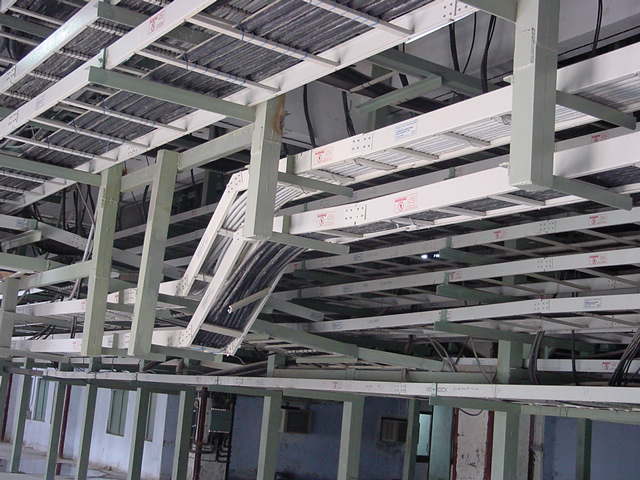Are you looking for an FRP cable tray for your industry? If yes, then must read this blog. Any infrastructure must have cable management to ensure the safe and orderly distribution of electrical and data connections. Cable trays made of Fiber Reinforced Plastic (FRP) have become a flexible and dependable option for cable management needs. In this blog, we’ll examine the various FRP cable tray types, their main uses, and all the benefits they provide for contemporary infrastructure.
What are FRP Cable Trays?
Fiber-reinforced plastic (FRP) cable trays are cable management devices made of a composite material made of reinforced fibers, usually fiberglass, and polymer resin. With this combination, a product that is perfect for supporting and shielding electrical cables, wires, and other components is lightweight, corrosion-resistant, and strong.
Types of FRP Cable Trays
FRP cable trays come in various types to accommodate different cable management requirements:
Ladder Trays
The ladder-like design of ladder trays has two parallel side rails joined by crossbars. They are frequently used in industrial environments and are perfect for supporting heavy wires.
Solid-Bottom Trays
Trays with solid bottoms feature a flat, solid surface that completely shields and supports cables. They are appropriate for locations where cables need to be protected from dust and debris.
Ventilated Trays
Ventilated trays have slots or apertures running the length of them to improve airflow around cables. They are frequently utilized in places like data centers where heat dissipation is an issue.
Purpose of FRP Cable Trays
Efficient Cable Support
FRP cable trays’ main function is to effectively support electrical and data cables. They provide a secure and well-organized platform for running cables through a structure or facility and securing them there.
Cable Protection
FRP cable trays shield cables from environmental variables like moisture, dust, and physical harm. The lifespan and dependability of the wires they support are guaranteed by this protection.
Cable Management
By enabling the separation and organization of various cable types, FRP cable trays assist in efficient cable management. This makes maintenance and troubleshooting easier and lowers the chance of cable tangling.
Advantages of FRP Cable Trays
Lightweight Construction
The lightweight design of FRP cable trays is one of their main benefits. FRP trays are simpler to handle and install than conventional metal trays, which lowers labor costs and installation time.
Corrosion Resistance
FRP cable trays have a high level of corrosion resistance. They are good for difficult locations including coastal areas and chemical facilities since they can tolerate exposure to dampness, chemicals, and salt.
Customization Options
FRP cable trays allow for extensive customization. Each project can be customized with a custom solution thanks to their simple modification, cutting, or bending to fit particular cable layouts and combinations.
Reduced Maintenance
FRP cable trays require less maintenance than metal cable trays, which may need constant painting and upkeep to stave off corrosion. Long-term cost savings are the outcome of this.
Longevity
Comparatively speaking, FRP cable trays last longer than conventional metal trays. Their long service life is a result of their toughness and resilience to environmental variables.
Non-Conductive Nature
Since FRP cable trays are non-conductive, the possibility of electrical mishaps is decreased. In locations where electrical safety is a top priority, this characteristic is very crucial.
Fire Resistance
FRP cable trays have a built-in resistance to fire. They don’t aid in the spread of flames and can aid in fire suppression, improving infrastructure safety.
Environmental Friendliness
FRP cable trays are thought to be eco-friendly. Because they are totally recyclable at the end of their lives and their production produces fewer carbon emissions, they have a smaller environmental impact.
Cost-Effectiveness
Although the initial cost of FRP cable trays may be slightly greater than that of conventional metal trays, they are a more affordable option in the long run due to their lower maintenance needs and durability.
Conclusion
Cable trays made of Fiber Reinforced Plastic (FRP) are adaptable and dependable options for managing cables in a variety of settings and industries. They are a great solution for contemporary infrastructure projects because of their lightweight design, resistance to corrosion, customization options, and many other benefits. Consider aspects like load capacity, environmental conditions, safety features, and the manufacturer’s reputation when selecting an FRP cable tray to make sure you choose the FRP cable tray. By harnessing the benefits of FRP cable trays, you can achieve efficient cable management and enhance the reliability of your infrastructure.




